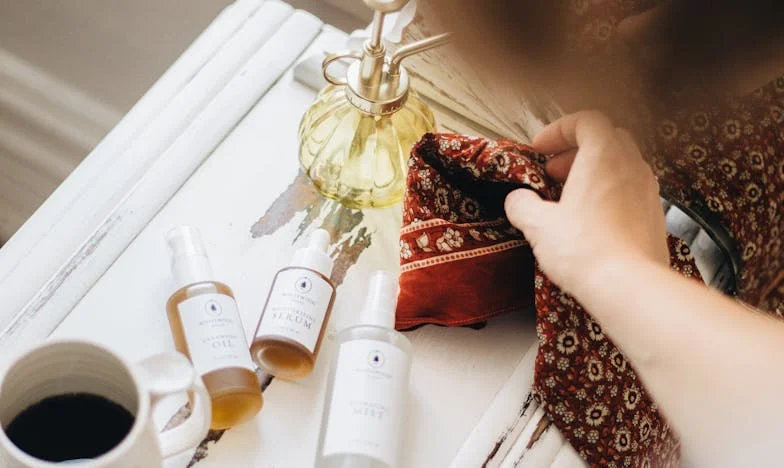When Love Fades: A Morning of Unspoken Words
“She really does look good. And I just… don’t see it anymore.” The thought hit me harder than the mug shattering on the kitchen floor. It was 7:03 AM. The sun was barely up, but our house was already noisy: cartoons blaring, the old pipes rattling, my wife Eileen muttering curses as she tried to clean our daughter’s sticky face with one hand while scrambling eggs with the other.
I’d just finished in the bathroom, my tie crooked and my mind already at the office, when I heard the crash. I rushed in, heart pounding for no reason other than habit. Eileen was kneeling, picking up jagged pieces of the mug I bought her last Valentine’s Day—the one with “#1 Mom” in pink script. Our four-year-old, Zoey, clung to her leg, wailing.
“Could you—just—take her for a second?” Eileen snapped, her voice frayed at the edges. I hesitated, then scooped Zoey up, holding her as she buried her face in my shoulder.
“Nice one, Eileen. That was your favorite mug,” I said, instantly regretting it. The sarcasm slipped out, the way old habits do.
She didn’t look at me. “It was an accident, Mark. Maybe if someone else ever made breakfast, I’d have a hand free.”
The silence between us was louder than Zoey’s cries. I tried to soothe my daughter, bouncing her gently, but my eyes stayed on Eileen—her hair pulled back, face flushed, jaw clenched. She really did look good. I just didn’t feel it anymore. When did that happen?
“Daddy, can you make the pancakes?” Zoey sniffed. I smiled—forced, tight. “Sure, honey. Maybe tomorrow.”
A few minutes later, Eileen brushed past me, her shoulder cold even through her robe. “You’re going to be late,” she said. “Again.”
I wanted to say something—anything—but all I did was put Zoey down and grab my keys. The door closed behind me. The house, I imagined, was quieter without me.
On the drive to work, I couldn’t shake the image of her on the floor, picking up pieces. When we first met, she was the center of every room. I’d watch her laugh with friends, all spark and wit. Now, we talked logistics: groceries, daycare, doctor’s appointments. Love letters replaced by sticky notes on the fridge.
That night, after Zoey was asleep, we sat on opposite ends of the couch, scrolling on our phones. The TV was on, some reality show we didn’t care about. I cleared my throat.
“Do you remember when we used to cook together?” I asked, the words awkward, like trying out a language I’d forgotten.
Eileen’s eyes flicked up. “Yeah. Before Zoey, before this house, before—” She stopped. “Life gets busy, Mark.”
I wanted to argue, to say that we made it busy, that we let the world in and forgot to lock the door behind us. But I just nodded, scrolling through emails that didn’t matter.
“Do you think we’re happy?” I blurted out. It was the question I’d been avoiding for months.
She put her phone down, finally looking at me. “I don’t know. Are you?”
I couldn’t answer. The silence grew, filling the room, the way water creeps under a closed door until you’re suddenly knee-deep in it.
A week passed, routines unchanged. Mornings were tense, evenings quieter than before. Zoey started having nightmares, calling for both of us. Each time, Eileen and I would meet in her doorway, wordless, united only in our concern for our daughter. We’d comfort her together, then return to our separate sides of the bed.
One Saturday, while Zoey napped, I found Eileen in the backyard, sitting on the old swing. The wind tangled her hair, and she looked so young for a moment—like the girl I fell in love with.
“Can we talk?” I asked, my voice shaking.
She nodded. For the first time in months, she didn’t look away.
“I miss us,” I said. “I miss you. I don’t want to just be roommates raising a kid.”
Eileen’s eyes filled with tears, and she swallowed hard. “Me too. But I don’t know how to fix it, Mark. I’m so tired.”
We sat in silence, the ache between us raw and honest. I reached out, taking her hand. She didn’t pull away.
“I think we forgot how to see each other,” I whispered. “I want to try again. For Zoey. For us.”
She squeezed my hand. “Okay. But it’s not going to be easy.”
I nodded, feeling the first stirrings of hope. Maybe love wasn’t about grand gestures, but about picking up the pieces—over and over—together.
Now, as I look at Eileen across the breakfast table, I wonder: How many couples are out there, living side by side but worlds apart? How do you know when it’s time to fight for what you’ve lost, and when to let go? Would you start over, if you could?
